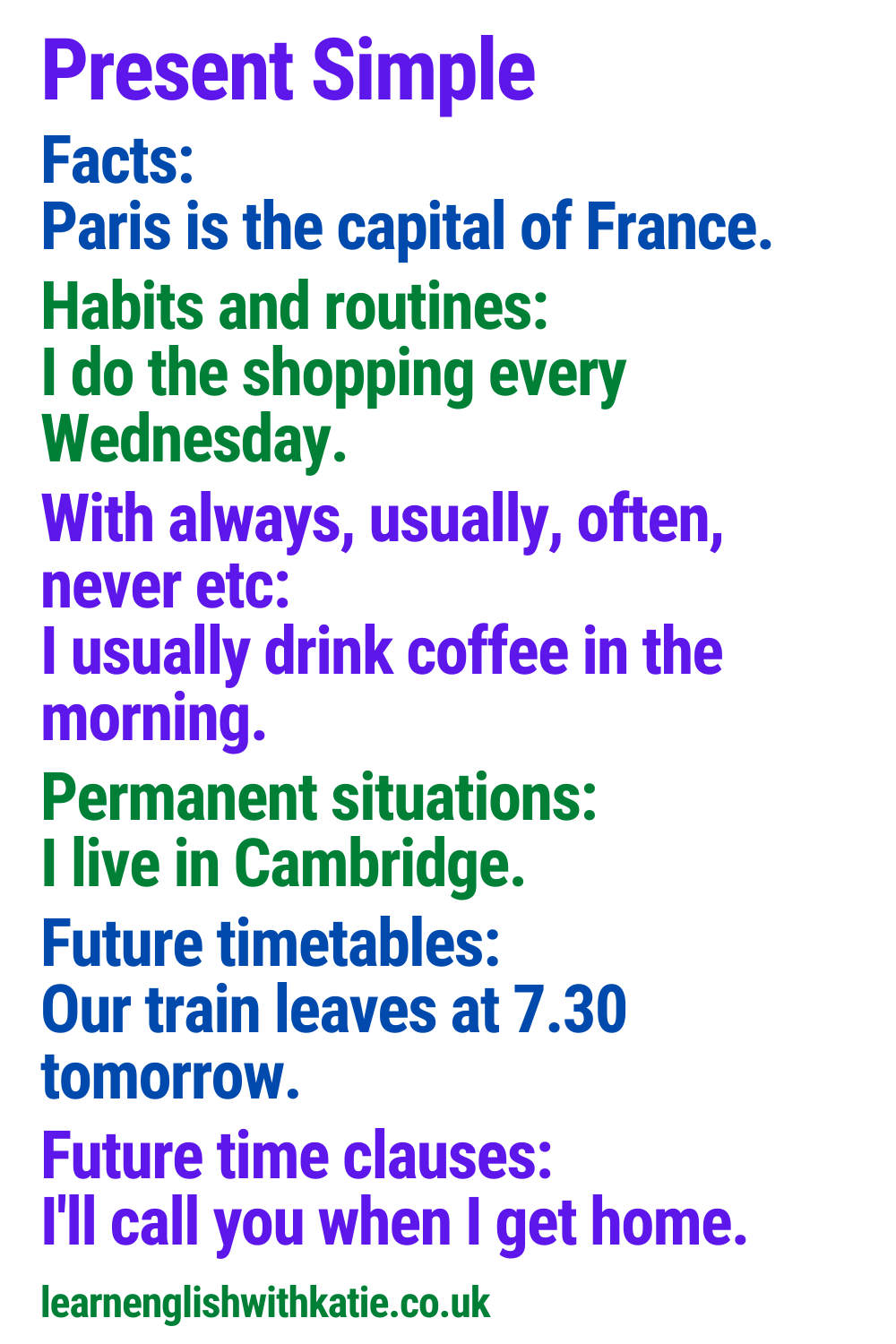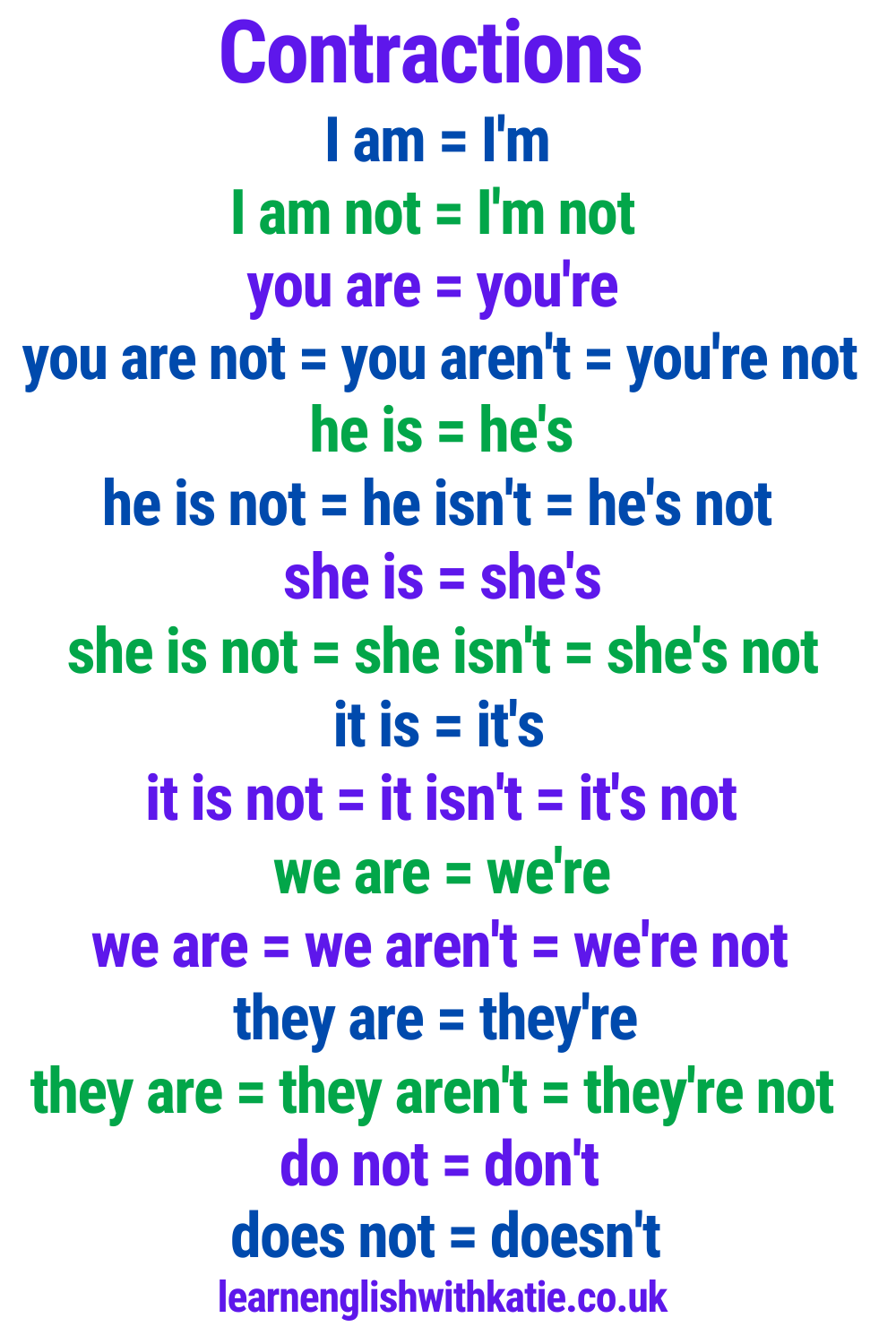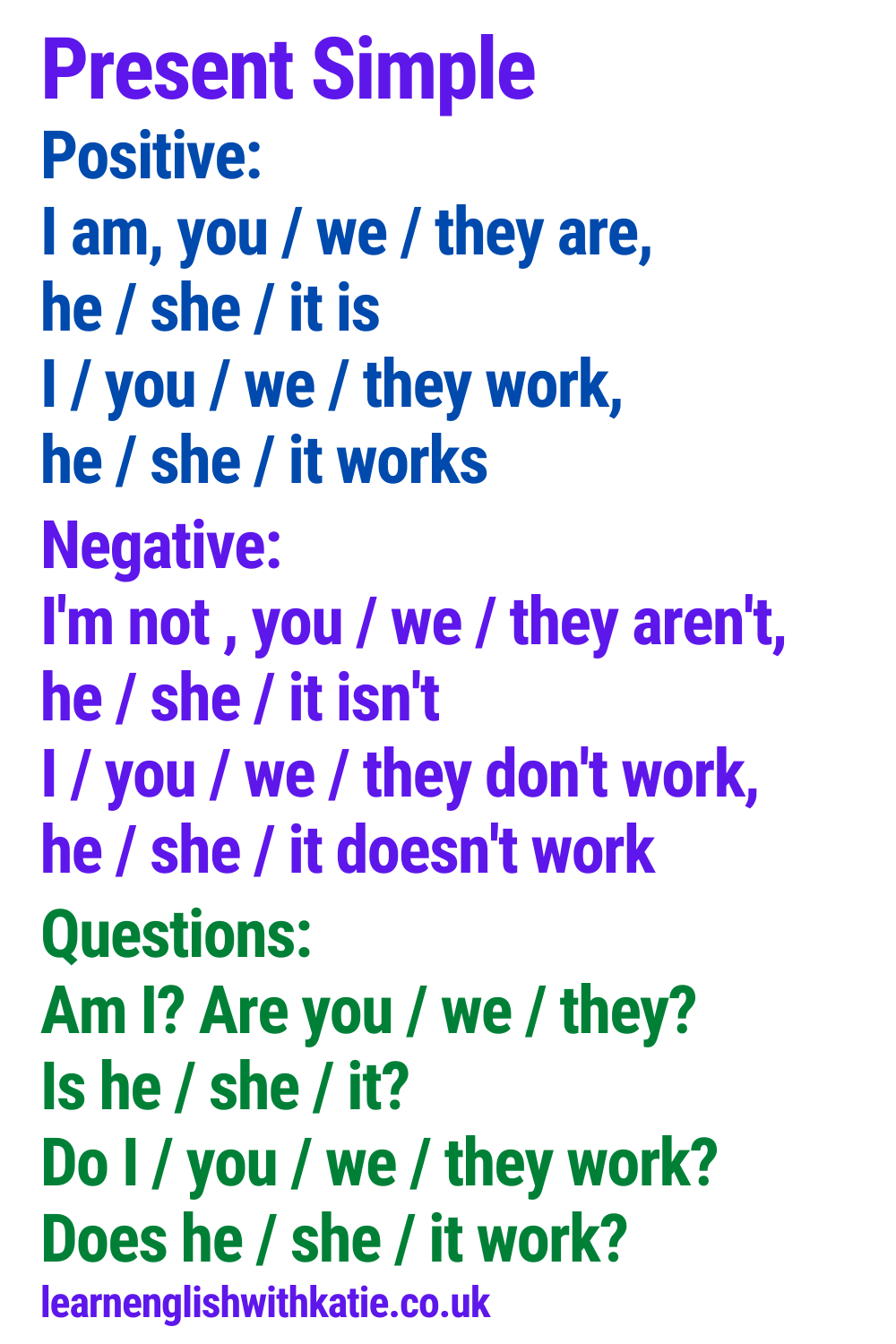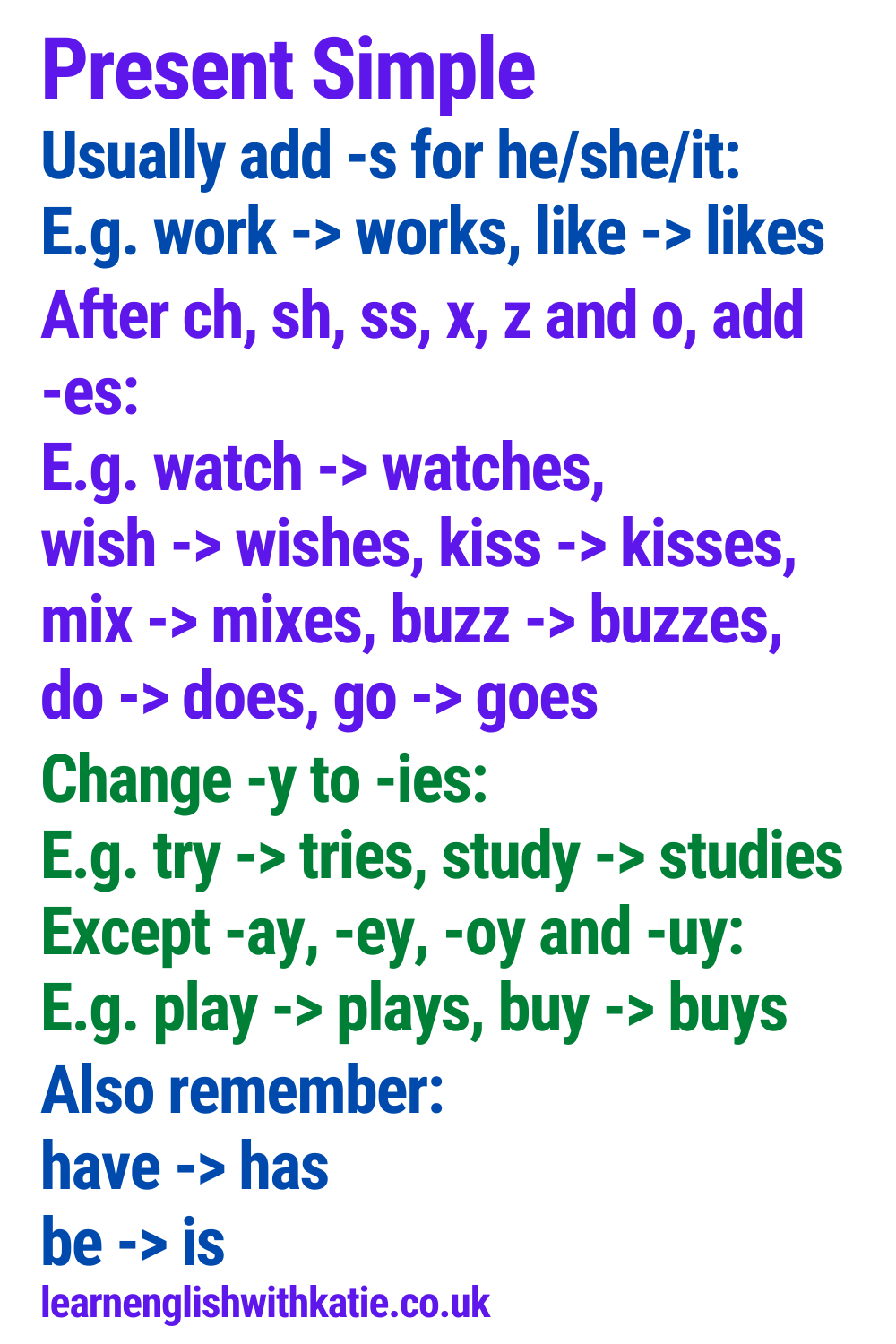|
I'm starting a series on Instagram and on my blog about all the tenses. Present simple is the first one everybody learns but do you know all the different uses? Do you know how to form questions and negatives? In some ways, this tense is not simple at all! Keep reading to learn more! Formation Positive: Be: I am, you / we / they are, he / she / it is (I’m, you’re, he’s, she’s, it’s, we’re, they’re) Work: I / you / we / they work, he / she / it works Take: I / you / we / they take, he / she / it takes Negative: Be: I am not, you / we / they are not, he / she / it is not (I’m not, you / we / they aren’t, he / she / it isn’t) Work: I / you / we / they do not work (don’t work), he / she / it does not work (doesn’t work) Take: I / you / we / they do not take (don’t take), he / she / it does not take (doesn’t take) Questions: Be: Am I? Are you / we / they? Is he / she / it? Work: Do I / you / we / they work? Does he / she / it work? Take: Do I / you / we / they take? Does he / she / it take? Spelling We usually add -s for he/she/it: E.g. work → works, like → likes After ch, sh, ss, x, z and o, add -es: E.g. watch → watches, wish → wishes, kiss → kisses, mix → mixes, buzz → buzzes, do → does, go → goes Change -y to -ies: E.g. try → tries, study → studies Except when there is a vowel, -ay, -ey, -oy and -uy: E.g. play → plays, buy → buys Also remember: have → has Use 1. Facts: Paris is the capital of France. Water boils at 100 degrees Celsius. 2. Habits and routines: She goes shopping every Wednesday. I get up at 7.30 on weekdays. 3. With adverbs of frequency (always, often, never, every day, twice a week and so on): I usually drink coffee in the morning. He never goes to the gym. 4. Future timetabled events: Our train leaves at 7.30 tomorrow. The film starts at 6 o’clock. 5. Permanent and long-term situations: I live in Cambridge. He works for an international company. 6. With future time clauses (after if, when, in case, as soon as etc): I’ll phone you when I get home. Take an umbrella in case it rains. Common mistakes 1. He like coffee. ❌ He likes coffee. ✔️ You probably know this but how often do you forget?! Don’t worry! It’s a very common problem but practise it as much as you can until it becomes automatic. 2. He don’t like coffee. ❌ He doesn’t like coffee. ✔️ This is similar to the first problem. 3. I no like coffee. ❌ I don’t like coffee. ✔️ We use “don’t” and “doesn’t” to make negatives in the present simple. We don’t use them in any other tense. 4. He doesn’t likes coffee. ❌ He doesn’t like coffee. ✔️ After “doesn’t”, the verb is always the infinitive. In other words, there is no “s”. 5. Does he likes coffee? ❌ Does he like coffee. ✔️ This is similar to number 4. There is no “s”. 6. I’m going for a walk every day. ❌ I go for a walk every day. ✔️ Use present simple and not present continuous for habits. 7. I’ll phone you when I will get home. ❌ I’ll phone you when I get home. ✔️ The first half of the sentence uses “will” because it’s future but the second half of the sentence is present simple. This happens in future time clauses after “when”, “if”, “in case”, “until”, “before” and “after”. Wondering what to study next? You might like to try the present continuous. Or click here for a present simple quiz. Or here for a quiz on all present tenses. If you would like more lessons and tips for how to learn English, click the button below and sign up for my newsletters:
0 Comments
Your comment will be posted after it is approved.
Leave a Reply. |
About the blogFollow the blog for mini lessons and tips on how to improve your English. Categories
All
Archives
July 2024
|




 RSS Feed
RSS Feed
